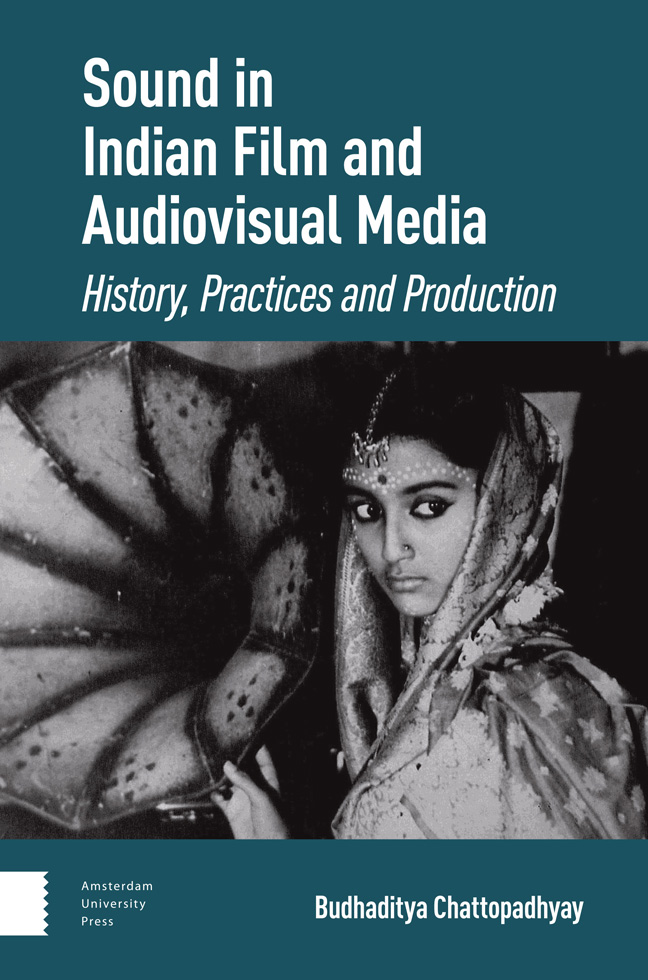Book contents
- Frontmatter
- Contents
- Acknowledgements
- 1 Introduction
- 2 The Technological Frameworks
- 3 Direct Sound and Early Talkies
- 4 Sound of the Golden Age
- 5 Tracing the Sound in Satyajit Ray’s Film-works
- 6 Popular Films from the Dubbing Era
- 7 Parallel Sounds, Radical Listening – Part I
- 8 Sholay, Stereo Sound and the Auditory Spectacle
- 9 The Advent of Digital Sync Sound
- 10 The Surround Revolution
- 11 Sound in the Audiovisual Media Arts
- 12 Parallel Sounds, Radical Listening – Part II
- 13 A Concluding Voiceover
- Bibliography
- Filmography
- Index
12 - Parallel Sounds, Radical Listening – Part II
Published online by Cambridge University Press: 20 February 2024
- Frontmatter
- Contents
- Acknowledgements
- 1 Introduction
- 2 The Technological Frameworks
- 3 Direct Sound and Early Talkies
- 4 Sound of the Golden Age
- 5 Tracing the Sound in Satyajit Ray’s Film-works
- 6 Popular Films from the Dubbing Era
- 7 Parallel Sounds, Radical Listening – Part I
- 8 Sholay, Stereo Sound and the Auditory Spectacle
- 9 The Advent of Digital Sync Sound
- 10 The Surround Revolution
- 11 Sound in the Audiovisual Media Arts
- 12 Parallel Sounds, Radical Listening – Part II
- 13 A Concluding Voiceover
- Bibliography
- Filmography
- Index
Summary
Abstract: This chapter starts with a discussion of feminist filmmakers in India and their impactful contributions to the use of sound. It then elaborates on independent films of the digital era, often termed ‘Indian indies’, following Parallel Cinema’s inclination toward audiographic realism, expanding into the use of sync sound and location recordings. Later, the chapter takes a critical overview of the use of sound in documentary, short film, experimental, and arthouse cinema genres throughout India. Examining the experimental processes of sound recording and design that widen audiovisual media’s scope reveals modulations of reality that resonate with contemporary India.
Keywords: Indian indies, feminist filmmakers, Cinema of Prayoga, nonfiction sounds
Feminist Filmmakers and their Sound worlds
Indian film industries, both in Mumbai and in the regions, have historically been male dominated, but the remarkable work of feminist filmmakers across India challenges the patriarchal genesis of Indian cinema, bringing with them cinematic idioms that push against the normative margins. In this small subchapter, only a very limited number of directors can be partially discussed, but hopefully this will encourage a future film (sound) scholar to expand this analysis.
One can start with Arundhati Devi, who made films like Chhuti (‘A Vacation’, 1967), Megh o Roudra (‘Clouds and Sunshine’, 1969), Padi Pishir Barmi Baksha (‘Burmese Box of Aunt Padi’, 1972), Deepar Prem (‘The Love of Deepa’, 1983), and Gokul (1985). Her portrayal of familial voices, often marginalized in society, and their greater aspirations in mundane situations receive significant perspective through sensitive listening. The balanced handling of sound contributes to the acoustic ecology of these filmic universes.
Aparna Sen, director of 36 Chowringhee Lane (1981), Paroma (‘The Ultimate Woman’, 1984), Sati (1989), Yugant (‘What the Sea Said’, 1995), Paromitar Ek Din (‘One day of Paromita’s’, 2000), Mr. and Mrs. Iyer (2002), and, more recently, Sonata (2017) and Ghawre Bairey Aaj (‘The Home and the World, Today’, 2019), has spearheaded a feminist and often intersectional-feminist perspective in Indian cinema. Her films, while incorporating conventional production technologies and aesthetics such as dubbing, ADR, Foley, and an expressive use of music, address cultural taboos, societal trauma, and the position of women. Her work also advocates for a collaborative spirit, sense of community, and convivial relationship between fellow filmmakers and practitioners.
- Type
- Chapter
- Information
- Sound in Indian Film and Audiovisual MediaHistory, Practices and Production, pp. 199 - 212Publisher: Amsterdam University PressPrint publication year: 2023



